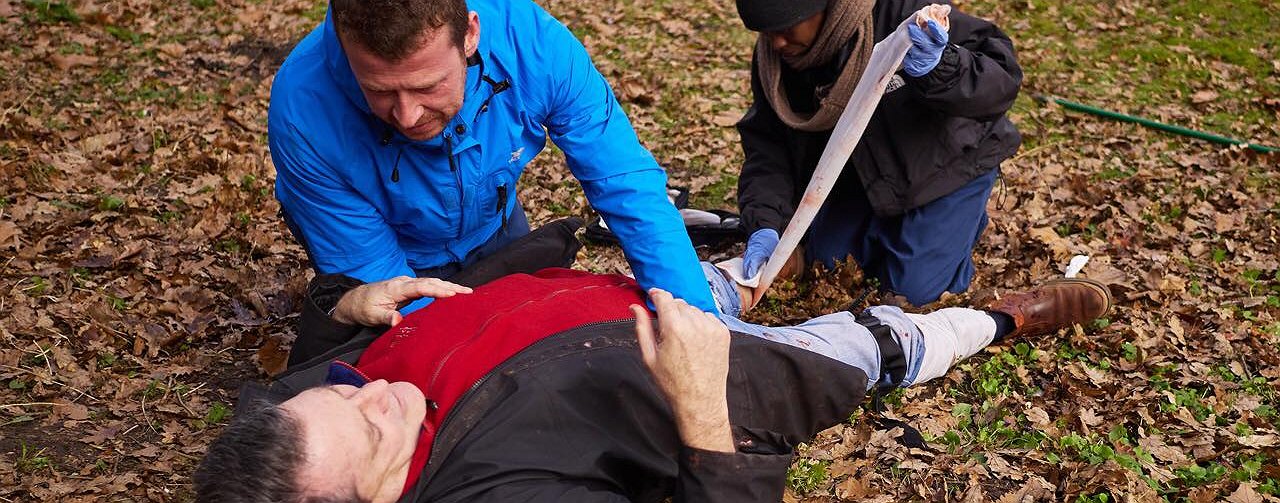Zainab Saleh is a Sudanese journalist and a member of The Marie Colvin Journalists’ Network. She freelances for The Guardian and other media institutions and has recently attended a Hostile Environment course, which targets journalists and NGO workers in conflict zones.
In March 2008, I was abducted along with some colleagues in the disputed Abyei region between Sudan and the state of South Sudan. The kidnappers belonged to an armed militia supported by the Sudanese government in Khartoum. We had gone to this area to report on land ownership disputes between the Dinka Ngok tribe - which is supported by the Sudan People’s Liberation movement and later became the ruling power in South Sudan - and the Arab Messiria tribe, supported by the Sudanese government in Khartoum. We were very lucky to be released a few hours later.
When travelling as a group, we must count the members before leaving the checkpoint to make sure that none of us had been abducted.
Back then, I had been a journalist for 11 months only, and this was my first assignment outside Khartoum in a conflict area. I had not had any safety training on how to deal with dangerous situations. We were dressed in clothes that were regarded by the locals as “foreign”, and I can imagine we must have looked like aliens to them.
But the training I received in Hampshire, UK, has given me a lot of information that will help me on my future assignments; whether in Sudan or neighboring countries where there is armed conflicts or instability.
The four-day course was partially funded by the Rory Peck Trust in London. It was held in the English countryside and was supervised by retired experts from the British Special Forces and the Metropolitan Police. There were 10 participants on the course, including 3 women. Some of us were journalists, and others worked either governmental and non-governmental organisations.
The course was largely focused on first aid. We had some tough training outdoors, despite the rain and cold. We learned how to deal with injuries from car accidents or live ammunition, and how to help the unconscious to keep breathing until the ambulance arrives.
Checkpoints
We also talked about checkpoints. An important advice was that journalists should raise their hands or put them on the steering wheel of the vehicle to show that they are unarmed. If we are travelling as a group, then we must count the members before leaving the checkpoint to make sure that none of us had been abducted. If soldiers or militiamen force us to leave the car, we should not leave the women behind because they could be assaulted. The trainers also reminded us that soldiers on checkpoints have a lot of time on their hands, and so they might try to waste our time for the most trivial reasons. Therefore, we should be patient and avoid any provocations. It is also important that we bring all the required documents with us, such as passports and permits, so we don’t give them any excuse to prolong our wait.
It is advisable to grow your nails when you're on a mission in a conflict zone, because they might be your only weapon in an attempted rape
After the field training, we returned to the lecture room where we had a discussion about giving bribes at checkpoints. The participants were divided on this. Most journalists said they were willing to pay a bribe in order to cross the checkpoint, especially in the case of breaking news because time is a critical factor. But those who work for governments and non-governmental organisations said they were not willing to pay bribes, as it was a matter of principle.
Rape and assault
The only downside of the training was that it did not include lessons in self-defense in the case of sexual assault or rape. I did, however, receive some advice afterwards, and the first precaution was choosing what to wear in the field. Your choice of clothes could deter attackers from targeting you in the first place. For example, a tight pair of trousers might seem provocative, but it is much harder to take it off as opposed to a long, modest and loose skirt. It is possible to wear tight trousers and a large shirt that covers parts of the legs – that would be modest and hard to take off at the same time.
It is advisable to grow your nails when you're on a mission in a conflict zone, because they might be your only weapon in an attempted rape. You can stick your nails in the attacker’s eye instead of trying to hit his genitals. This way, he may lose sight and you can have an opportunity to escape.
Since your life is at stake in such situations, you can also vomit or even urinate on yourself because this may disgust him and make him refrain from attacking you. If you scream loud in his ear he may lose balance, and this would also draw the attention of others around you.
This training has definitely provided me with a lot of information on issues that journalists should take into consideration. These are important issues for me, whether in Sudan or when I travel to other neighboring countries.
If you need more information on field safety, please check resources from The Samir Kassir Foundation, the Rory Peck Trust, Committee to Protect Journalists, and others, all made available on our Resource Library.
Photo: Zainab Saleh in field first aid training
